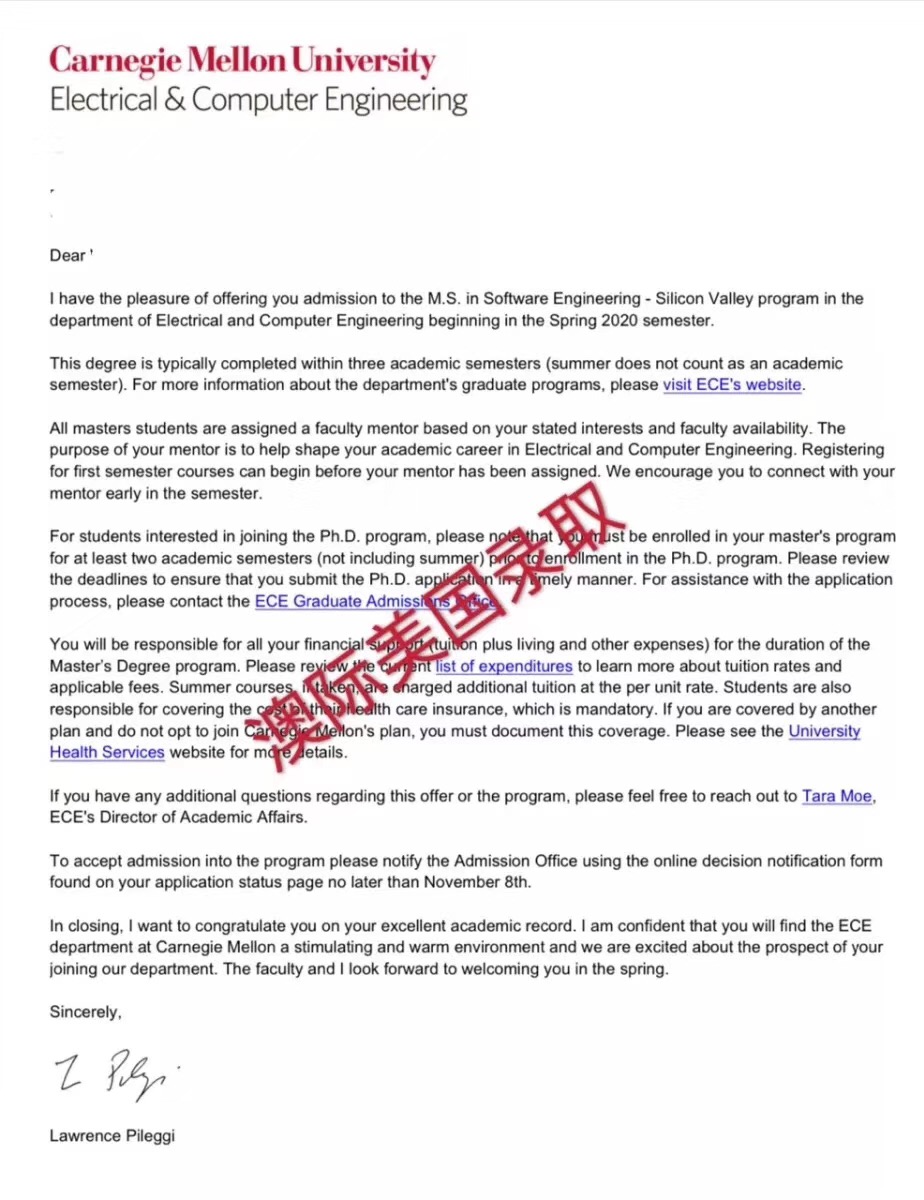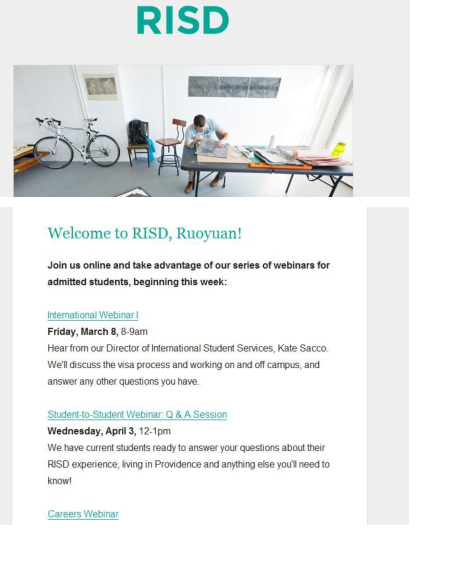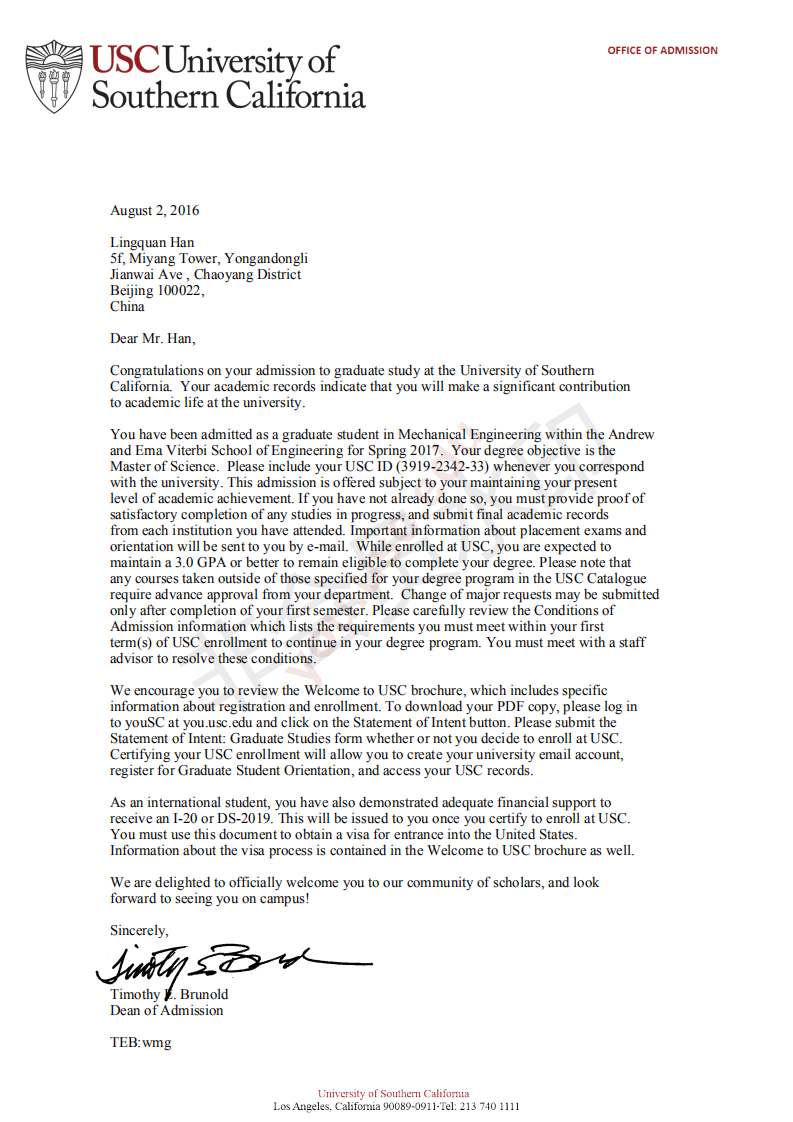美国大学面试经验 哪些问题最难答?.
2017-07-25 261阅读
美国大学在录取前,需要经过面试,如何进行美国MBA面试准备?美国MBA面试中最可能问到的问题是什么?最难回答的问题是什么?下面,澳际留学与您分享美国MBA面试经验,希望对大家有所帮助。
MBAs share their toughest b-school interview questions, how they responded at the time, and how they would respond now!
has asked MBAs about the most difficult questions they were asked in business school interviews, and how they might answer them now they know more about the process.
MBA interviews are notoriously tough, and anecdotally the part of the admissions process that worries applicants most. But worry no more – these successful applicants have spilled the beans on the toughest questions they were asked, their answers, and how they would improve them if they were to be asked the questions again.
Vladimir Chernyaev, who studied for an MBA at IE Business School, gave us the following insight.
My toughest question:
What additional value can you add to a class?
My original answer:
I responded about my sales experience in the healthcare and pharmaceutical market.
What I would say now:
I realise now that a better answer would have been much broader, taking into consideration not only my work experience, but my cultural and personal background, and would show an understanding of market conditions. I would also recommend that interviewees take into consideration the key values and strengths of the business school they are applying to: for example, IE Business School is very focused on diversity.
Ankit Khanna, an MBA from HEC Paris, wanted to expand his operations as an entrepreneur beyond India and into Europe.
My toughest question:
Why do you want to do an MBA when you can achieve your goal just by finding the right contacts?
My original answer:
I answered that I wanted to pick up relevant marketing skills during the MBA that will help me target the right customer base in Europe.
What I would say now:
During the MBA, I realised that developing a business in Europe needs a lot more than just having the right marketing skills. So if I were to answer that question now, I would emphasize how the diversity at the HEC MBA program would help bring the cultural understanding that I need to develop this idea. Also, I would point out that HEC&aposs incubator program would provide immense support to my ambitions. Moreover, I would also emphasize how I could leverage the huge HEC alumni network to develop relevant contacts.
Chris Wong’s interview at CEIBS focused on the Lehman Brothers bankruptcy case, an area in which he had worked.
My toughest question:
Why did Lehman fail, and what can be done to prevent such failures in the future?
My original answer:
As this did not specifically relate to the day to day bankruptcy work that I was doing (which involved handling creditors’ claims and the distressed assets that Lehman had invested in previously), I answered the question as well as I was able to, talking about how bank regulations have to be improved.
What I would say now:
My answer would probably be along the same lines, but perhaps I would have been able to quote specific regulations, having brily studied and researched about them during my MBA course work. My advice is for candidates to not just focus on the specific work they are doing, but to have knowledge on the bigger picture, be aware of the issues, and form their own views on them. They may very well be asked about such topics in their interviews!
Jonathan Blackwell, who interviewed for an MBA at AGSM after having majored in visual art, had a positive interview experience.
My toughest question:
My interviewer was the kindest, most motherly figure I could have imagined, and was not the "grilling" type of person in her interview style. There was no question I couldn&apost answer, only experiences I didn&apost have yet and would not have until I&aposd completed the degree.
My original answer:
I simply presented my interests, my passions, and my character as accurately as I could, not knowing what to say or even how to prepare for something like this with my arts background.
What I would say now:
If I were sitting in that chair again, I would shown my awareness of how an MBA would be a humbling experience. I agree with Roger Martin in "The Design of Business" that more people looking to do an MFA (Master of Fine Arts) should get an MBA, so our Masters of Business Administration are leading from our own collective future of highest potential.
With creative business leaders, we will see more of our problems being solved through businesses in the free market that are not afraid to lead with a positive intuition based on the creative spirit that keeps artists feeling truly alive.
It is my calling in life to show that artists, when given business knowledge, can truly lead in the otherwise intimidating world of business that has driven the global economy to where we are today. As we start using more of our right brains to match the traditional lt brains in business, we also open up the creative energies that we all posses. The more creative our business leaders, the more women and minorities will also have a seat at the table.
And Charlie Chen, from Manchester Business school, allays fears by telling us that the interview wasn’t that bad after all...
The interview actually wasn’t that dreadful, especially when you have years of work experience in sales and marketing. Basically, you are just selling yourself on how you can help the school to expand in the future. My suggestion is to prepare for possible business school interview questions ahead of time, by writing down your answers. In addition, schools like to see a diverse student profile, so demonstrating how international you are could also help too.
以上就是美国MBA面试经验,你都准备好了吗?
美国大学面试经验 哪些问题最难答?第二页:美国大学MBA面试问题美国大学在录取前,需要经过面试,如何进行美国MBA面试准备?美国MBA面试中最可能问到的问题是什么?最难回答的问题是什么?下面,澳际留学与您分享美国MBA面试经验,希望对大家有所帮助。
MBAs share their toughest b-school interview questions, how they responded at the time, and how they would respond now!
has asked MBAs about the most difficult questions they were asked in business school interviews, and how they might answer them now they know more about the process.
MBA interviews are notoriously tough, and anecdotally the part of the admissions process that worries applicants most. But worry no more – these successful applicants have spilled the beans on the toughest questions they were asked, their answers, and how they would improve them if they were to be asked the questions again.
Vladimir Chernyaev, who studied for an MBA at IE Business School, gave us the following insight.
My toughest question:
What additional value can you add to a class?
My original answer:
I responded about my sales experience in the healthcare and pharmaceutical market.
What I would say now:
I realise now that a better answer would have been much broader, taking into consideration not only my work experience, but my cultural and personal background, and would show an understanding of market conditions. I would also recommend that interviewees take into consideration the key values and strengths of the business school they are applying to: for example, IE Business School is very focused on diversity.
Ankit Khanna, an MBA from HEC Paris, wanted to expand his operations as an entrepreneur beyond India and into Europe.
My toughest question:
Why do you want to do an MBA when you can achieve your goal just by finding the right contacts?
My original answer:
I answered that I wanted to pick up relevant marketing skills during the MBA that will help me target the right customer base in Europe.
What I would say now:
During the MBA, I realised that developing a business in Europe needs a lot more than just having the right marketing skills. So if I were to answer that question now, I would emphasize how the diversity at the HEC MBA program would help bring the cultural understanding that I need to develop this idea. Also, I would point out that HEC&aposs incubator program would provide immense support to my ambitions. Moreover, I would also emphasize how I could leverage the huge HEC alumni network to develop relevant contacts.
上12下
共2页
阅读全文留学咨询
更多出国留学最新动态,敬请关注澳际教育手机端网站,并可拨打咨询热线:400-601-0022
留学热搜
相关推荐
- 专家推荐
- 成功案例
- 博文推荐

Copyright 2000 - 2020 北京澳际教育咨询有限公司
www.aoji.cn All Rights Reserved | 京ICP证050284号
总部地址:北京市东城区 灯市口大街33号 国中商业大厦2-3层









高国强 向我咨询
行业年龄 12年
成功案例 3204人
留学关乎到一个家庭的期望以及一个学生的未来,作为一名留学规划导师,我一直坚信最基本且最重要的品质是认真负责的态度。基于对学生和家长认真负责的原则,结合丰富的申请经验,更有效地帮助学生清晰未来发展方向,顺利进入理想院校。
陈瑶A 向我咨询
行业年龄 16年
成功案例 4879人
拥有大量高端成功案例。为美国哈佛大学、宾夕法尼亚大学等世界一流名校输送大批优秀人才。
齐亚楠 向我咨询
行业年龄 14年
成功案例 3803人
商科案例有哥伦比亚大学等,工科案例有麻省理工大学等,艺术案例有罗德岛大学等。
李君君 向我咨询
行业年龄 14年
成功案例 3890人
成功案例涉及美国排名前60的院校,专业涵盖商科(金融,会计,管理),工科(生物工程,化学工程,计算机科学,电气工程)等热门领域。